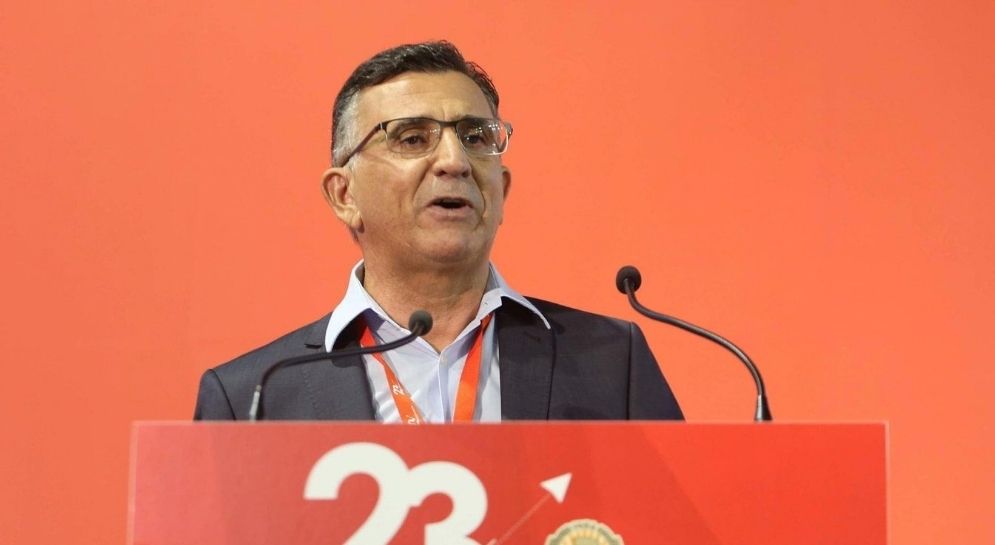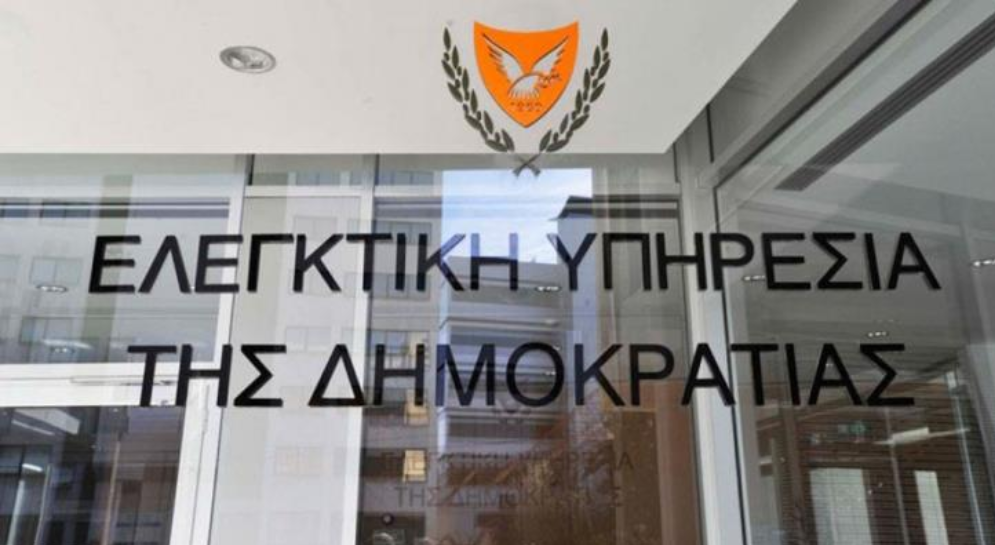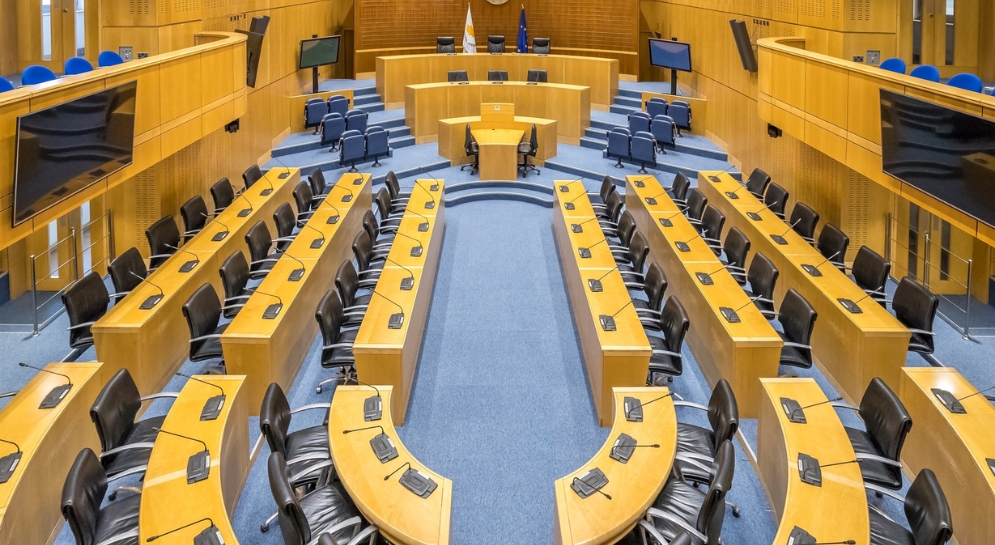
Interview with Nikos Ioannou, member of the Political Bureau and Secretariat of AKEL: First the political framework and then names for the presidential election
Sunday 6 February 2022, ‘Haravgi’ newspaper
- Those in a rush to promote or exclude names only harm the goal of achieving change
- The pursuit of minimum convergence on key issues is imperative – The supported candidate will have his/her own programme and parties will maintain their positions
- If we were to confirm or deny press reports, we wouldn’t be a party but a betting agency – At this stage we have not put forward any names
- Even if we don’t reach an agreement with other political forces, the programme of the candidate AKEL will support will still appeal to the wider society
QUESTION: AKEL declares that it is ready and in the front line of the efforts to ensure that Cyprus will make a new start with the 2023 Presidential Elections. Which political forces and parties agree with this goal and on what conditions?
NK: AKEL’s aim is to forge cooperation on the basis of principles with other political forces, bodies and personalities in society who share the goal of achieving change in the government of the country.
We will seek to arrive at convergences that will lead to cooperation with a common candidate. The aim is to reverse the disastrous course the country has taken on the Cyprus problem, to protect our people’s labour and social rights and to lay a solid foundation for a modern state governed by the rule of law, transparency and sound administration. We shall seek to rid Cyprus of the current predatory economy. Priority will be given to the issues of education, health, environment, energy and research. On these issues the DISY-Anastasiades government has, admittedly, failed miserably.
Q: The different positions between the opposition parties on key issues of concern to society can be overcome if everyone makes some compromises. Can this, on the other hand, be considered as a “deviation” from positions of principle?
NK: In Cyprus’ Presidential Democracy system, where no party has the required absolute majority, cooperation and the pursuit of a minimum basis, common positions and convergences on core issues is imperative. The presidential candidate to be supported will have his/her own programme and the parties will maintain their positions, as is always the case. Of course, he/she must take account the parties’ sensitivities so as not to invalidate them, which is precisely why we are talking about cooperation based on principles, cooperation on the basis of specific convergences.
Q: AKEL has for some time now set the objective of “substantive and progressive change”. However, almost everyone, even ruling DISY party, is talking about change…
NK: Someone who is not familiar with Cypriot reality will think, following the news, that DISY President Averof Neophytou is not from the government, but from the opposition camp! It is obvious that in the election period Averof Neophytou will find it very difficult and will be under attack. Will he or will he not support the policies that were pursued by the government with which he has been a fellow traveler and co-governing for 9 years? Will he or will he not criticise the two state solution that the President of the Republic was discussing on many levels? Will he or will he not criticise Mr. Anastasiades’ own involvement in corruption and entanglement/interwoven interests issues that have also the stamp of the European Parliament?
Former Foreign Minister Nicos Christodoulides will find himself in the same difficult predicament if he does stand as a candidate. Will he continue to portray himself as the brainchild of DISY and the government of Mr. Anastasiades, or will he play the game of calling for change? Will we see him opposing those he has with consistency served for 9 years? Was he or was he not on board with Anastasiades’ “friends”? And if he was – which he was – why has he now jumped ship?
Q: Both before and after the Plenary of the Central Committee, of AKEL some in a well-meaning way and others in bad faith, engaged in public speculation on name-calling of potential presidential candidates. Despite the provocations, the leadership of AKEL has neither denied, nor confirmed the reports, a fact which permits a public debate around them. Does it want to gauge the reaction to what is being discussed?
NK: The mass media are doing their job and we are doing ours. If we were to confirm or deny press reports and information about names, then we wouldn’t be a party, but instead a betting agency. I want to be quite clear: at this stage we have not put any names on the list. We have outlined the political framework in place to discuss with other opposition forces. If we agree on this framework, we will subsequently move on to the question of names.
Names, of course, will not only be proposed by AKEL, but by other political forces too. The Central Committee of AKEL has set specific criteria for the choice of any names. If the criteria of other parties, or of some parties, for the selection of candidates match or converge with ours, then we will go to the Party membership for its approval. The Pancyprian Party Conference will be the culmination of this effort.
However, we are at the initial stage. Those who are in a hurry to promote or exclude names only harm the goal of achieving change. We are not mistaken in our procedures. Democratic procedures function and will proceed in AKEL. We followed the same procedures for the selection of AKEL’s parliamentary candidates. As the General Secretary of AKEL has said, “wise people say few words”. These things demand patience and not just whoever gets there first.
Q: What will be the primary objective in the formal consultations with the opposition parties? To agree on programmatic positions and then prepare the candidate’s suit, or will this be done simultaneously?
NK: Unquestionably we must first talk about programmatic positions with the opposition parties. If we can agree on minimum positions and convergences that do not violate or go beyond our “red lines”, then the task of agreeing on a joint candidate, with regards preparing the programme to be put before the people, will be made easier. His/her election program will not be a copy of the programme of AKEL or of any other party.
The candidate’s program will be his/her own, with which the joint candidate will address the people, and it does not necessarily mean that it will be fully in line with our positions on all issues. Even in the event that we do not arrive at an agreement with other political forces, the programme of the candidate supported by AKEL will still address society at large. Since the foundation of the Republic of Cyprus, AKEL has approached the presidential elections as a meeting ground for the forces that wish to take the country forward.
Q: Are there any timeframes for these consultations? When you talk about announcements to be made in spring, can you be more specific, at least on the part of AKEL?
NK: Some timeframe is necessary. As I said, we are essentially starting now by going to our members, friends and the New Forces, to set the political framework and to listen to what they have to say. We subsequently will again discuss with them to get their views on the matter. That is how we understand democracy in AKEL. That is why members should respond to the party’s call and express their views where they should express them, bearing in mind that the selection of the Presidential candidate represents a supreme political act.
Q: On the question of irregularities in the legislation on the finances of presidential elections
NK: The legislation is full of many loopholes and ambiguities and lacks logic. Nor have the interpretations of the Attorney General, given before the 2018 presidential election, covered the gaps.
How is it, for example, that political parties, which constitute the pillar of support of candidates, don’t have the right for expenditures on presidential elections?
Are election expenses, as well as revenues, only made by the campaigning team of a Presidential candidate?
One more point: Candidates in presidential elections are entitled to spend up to €1 million.
In the last presidential election the Auditor General concluded that all the main candidates, with the exception of Stavros Malas (Note: the candidate AKEL backed), exceeded the 1 million limit set by law. Furthermore, pre-election expenditure, according to the legislation, is only audited for a period of 6 months.
However, there are now candidates who have already been running a campaign for more than a year and are outside of any control over their spending. That and much more.
As AKEL we are ready to discuss the establishment of a transparent and a strict rigorous framework of election expenditures and incomes for candidates and parties.
After all, when the legislation on political parties came into force, AKEL immediately complied with the obligation to fully implement and present our financial statements in a transparent manner, whether they concern the functioning of the Party or the various electoral contests”.




